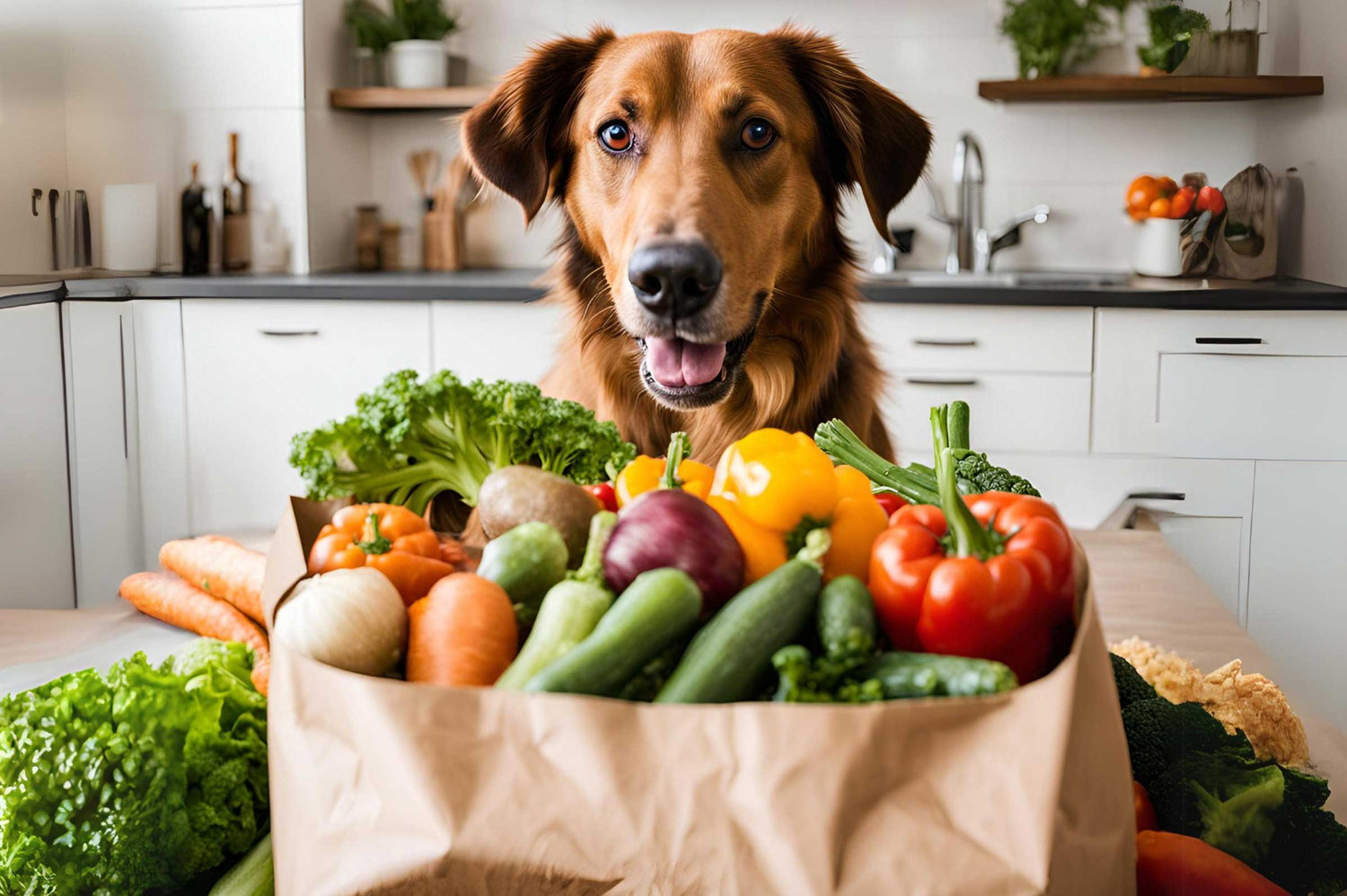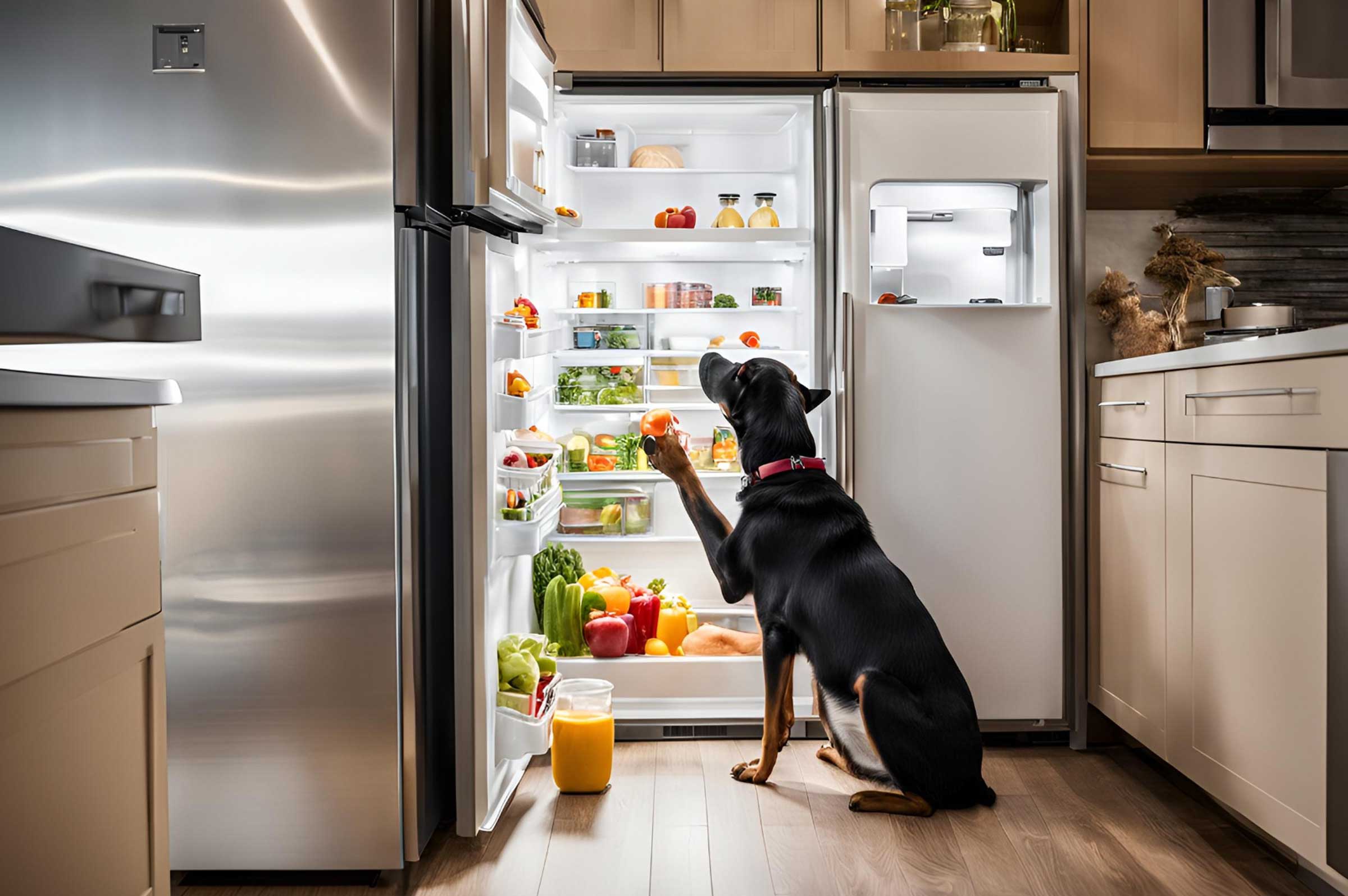Feeding your dog safe and healthy foods is crucial to ensuring their well-being and longevity. While commercial dog food often meets the basic nutritional needs of our furry friends, incorporating certain human foods into their diet can provide additional health benefits. However, it's essential to know which human foods are safe for dogs and how to offer them in a way that supports their overall health. In this blog, we'll explore the top human foods that are not only safe but also healthy for dogs to eat.
For more information about human foods for dogs, you can also read up on foods that, while aren’t toxic to dogs, also aren’t particularly healthy and shouldn’t be fed to dogs, and foods that are toxic to dogs.
Safe Foods for Dogs: An Overview
Knowing which human foods are safe for dogs is vital for any pet owner. Not all foods that are good for humans are good for dogs, so understanding the difference is key. Safe foods for dogs, often referred to as dog-friendly foods, can be a great way to diversify your dog's diet and offer them healthy treats. Incorporating these foods into your dog's diet can help improve their nutrition and add variety to their meals, keeping them happy and healthy.
Can Dogs Eat Fruit?
Fruits can be a delicious and healthy addition to your dog's diet. They are packed with vitamins, minerals, and antioxidants that can benefit your dog's health in numerous ways.
What Fruits Are Safe for Dogs?
Several fruits are safe for dogs to eat, including apples, bananas, and blueberries. These fruits are not only tasty but also provide essential nutrients.
Can dogs eat apples? Yes, apples are safe for dogs and are a good source of vitamins A and C.
Can dogs eat bananas? Yes, bananas are safe for dogs and are rich in potassium and fiber.
Can dogs eat blueberries? Yes, blueberries are safe for dogs and are full of antioxidants that support overall health.
How to Safely Incorporate Fruit into Your Dog’s Diet
When offering fruits to your dog, it's important to do so in moderation. Always remove seeds, pits, or cores, as these can be harmful to your dog. You can serve fruits as a snack or mix them into your dog's regular meals, but remember to keep portions small to avoid any digestive issues.
Can Dogs Eat Vegetables?
Vegetables are another excellent food group to consider for your dog’s diet. They offer a range of nutrients that can support your dog’s health.
Safe Vegetables for Dogs
Some vegetables, such as carrots and pumpkin, are particularly beneficial for dogs.
Can dogs eat carrots? Yes, carrots are safe for dogs and are great for their teeth and eyesight.
Can dogs eat pumpkin? Yes, pumpkin is safe for dogs and can help with digestion due to its high fiber content.
How to Serve Vegetables to Dogs
It's best to cook or steam vegetables before serving them to your dog to make them easier to digest. Vegetables can be served as a snack or mixed into your dog's meals. As with fruits, moderation is key to preventing digestive upset.
What Meats Are Safe for Dogs?
Meat is a vital part of a dog’s diet, providing the protein they need to stay strong and healthy.
Best Meats for Dogs
Several types of meat are safe and healthy for dogs.
What meats are safe for dogs? Chicken, turkey, and fish are excellent choices.
Can dogs eat fish? Yes, fish is safe for dogs and is a good source of omega-3 fatty acids, which are beneficial for their coat and skin.
Preparing Meat for Dogs
When preparing meat for your dog, make sure it is cooked thoroughly and free from spices, seasonings, or sauces that could be harmful. Meat should be served plain and in moderation, ensuring your dog receives a balanced diet.
Safe Snacks and Treats for Dogs
Healthy snacks and treats are a wonderful way to reward your dog while keeping their diet nutritious.
Homemade Dog Treats Safe Foods
Homemade treats can be made from a variety of safe human foods, such as:
Can dogs eat peanut butter? Yes, peanut butter is safe for dogs as long as it is free from xylitol, a sweetener that is toxic to dogs.
Can dogs eat rice? Yes, rice is safe for dogs and is often recommended for dogs with digestive issues.
Can dogs eat oatmeal? Yes, oatmeal is safe for dogs and is a good source of fiber.
Store-Bought vs. Homemade: Which is Better?
While store-bought treats can be convenient, homemade treats allow you to control the ingredients and ensure they are healthy and safe for your dog. Homemade treats made from safe human foods can often be a better option, providing peace of mind that you’re giving your dog something nutritious.
Safe Dairy and Grains for Dogs
Dairy and grains can also be part of a dog’s diet, but it's important to choose the right options.
Can Dogs Eat Dairy?
Some dairy products are safe for dogs and can be offered in moderation.
Can dogs eat yogurt? Yes, plain yogurt is safe for dogs and can support their digestive health.
Can dogs eat cheese? Yes, cheese is safe for dogs in small amounts, but it’s best to choose low-fat varieties.
Safe Grains for Dogs
Grains such as oats and rice are safe for dogs and can be beneficial for their diet.
Safe grains for dogs include plain, cooked oats and rice, which are easy to digest and provide a good source of energy.
Creating a Dog-Safe Food List
To help you remember which human foods are safe for your dog, here’s a quick dog-safe food list:
Fruits: Apples, bananas, blueberries
Vegetables: Carrots, pumpkin
Meats: Chicken, turkey, fish
Snacks and Treats: Peanut butter, rice, oatmeal
Dairy: Yogurt, cheese
Grains: Oats, rice
Always consult your veterinarian before introducing new foods into your dog’s diet to ensure they are appropriate for your dog's specific health needs.
Conclusion
Feeding your dog safe and healthy foods is a great way to support their overall health and well-being. By carefully choosing and incorporating human foods into their diet, you can offer your dog a variety of nutrients and flavors they will love. Remember to introduce new foods gradually and in moderation, and consult with your veterinarian to ensure these foods are suitable for your dog.
With the right approach, you can enhance your dog’s diet with delicious and nutritious options that will keep them happy and healthy for years to come. In addition to a healthy diet, VetSmart Formulas provides the supplements your best friends need to stay happy and healthy.











